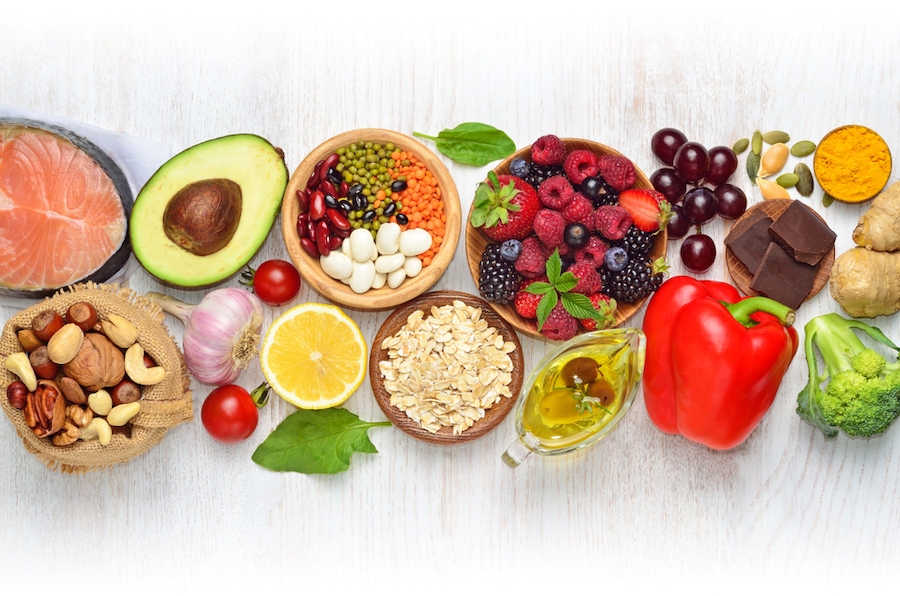
- Heart healthy food skin#
- Heart healthy food full#
Alice Lichtenstein Director, Cardiovascular Nutrition Laboratory Tufts University
University of Illinois Extension: "Sweet potato factsheet.Thought Leaders Dr. UC Davis Nutrition Department: "The benefits of consuming almonds," "Walnuts lower cholesterol and triglycerides in free-living adults.". UC Berkeley Wellness: "Carrots: A beta carotene wonder," "What you should know about tuna.". USDA SNAP-Ed Connection: "Blueberries," "Cantaloupe.". USDA Food Composition Database: "Broccoli, raw," "Rice, brown, long-grain.". Tufts University Health & Nutrition Letter: "Which color of bell pepper has most nutrients?". Heart healthy food skin#
Produce for Better Health Foundation: "What is the nutritional value of half an acorn squash if you eat the skin too?". The Hawaii Papaya Industry Association: "Nutrition facts.". Harvard Health Publishing: "Finding omega-3 fats in fish: Farmed versus wild," "Why not flaxseed oil?". Network for a Healthy California: "Harvest of the month: Asparagus," "Harvest of the month: Oranges.". NIH Fact Sheet for Health Professionals: "Niacin.". NIH: "Know the differences: Cardiovascular disease, heart disease, coronary heart disease.". Journal of the American Heart Association: "The dilemma with the soy protein health claim.". Household USDA Food Fact Sheet: "Beans, black.".  Dairy Council of California: "Health benefits of oatmeal.". Circulation Research: "Serum beta carotene and overall and cause-specific mortality.". Circulation: "Soy protein, isoflavones, and cardiovascular health.". British Heart Foundation: "Can tomatoes prevent heart attacks?". Biomedicines: "Resveratrol: A double-edged sword in health benefits.".
Dairy Council of California: "Health benefits of oatmeal.". Circulation Research: "Serum beta carotene and overall and cause-specific mortality.". Circulation: "Soy protein, isoflavones, and cardiovascular health.". British Heart Foundation: "Can tomatoes prevent heart attacks?". Biomedicines: "Resveratrol: A double-edged sword in health benefits.".  American Institute for Cancer Research: "How much nutrition do I lose by using frozen spinach instead of fresh?". American Heart Association News Archive: "Tea drinking linked to better heart health.". American Heart Association: "The American Heart Association diet and lifestyle recommendations," "Fish and Omega-3 Fatty Acids," "Good news about chocolate.". Its use in high-calorie processed foods led the FDA to revoke some of the heart health claims of tofu products in 2017. It is included in many ultraprocessed foods, a type of food that has been associated with obesity and cardiovascular health problems. As healthy as it can be, tofu is not always in good company. Avoid Processed Tofu ProductsĪlthough tofu has been shown in many studies to have heart-protective qualities, it depends on how you prepare it. Make a tofu, lettuce, and tomato sandwich on whole grain bread, use instead of meats in pasta dishes, and add in slices or cubes to salads for added protein. Thinly slice firm tofu, marinate for several hours and grill or add to your favorite veggie stir-fry. It's easy to prepare and can be part of almost any meal. Tofu is sometimes called "bean curd" because it is made from pressed soybean curd.
American Institute for Cancer Research: "How much nutrition do I lose by using frozen spinach instead of fresh?". American Heart Association News Archive: "Tea drinking linked to better heart health.". American Heart Association: "The American Heart Association diet and lifestyle recommendations," "Fish and Omega-3 Fatty Acids," "Good news about chocolate.". Its use in high-calorie processed foods led the FDA to revoke some of the heart health claims of tofu products in 2017. It is included in many ultraprocessed foods, a type of food that has been associated with obesity and cardiovascular health problems. As healthy as it can be, tofu is not always in good company. Avoid Processed Tofu ProductsĪlthough tofu has been shown in many studies to have heart-protective qualities, it depends on how you prepare it. Make a tofu, lettuce, and tomato sandwich on whole grain bread, use instead of meats in pasta dishes, and add in slices or cubes to salads for added protein. Thinly slice firm tofu, marinate for several hours and grill or add to your favorite veggie stir-fry. It's easy to prepare and can be part of almost any meal. Tofu is sometimes called "bean curd" because it is made from pressed soybean curd. Heart healthy food full#
And it's full of heart-healthy nutrients including niacin, folate, calcium, magnesium, and potassium. That's because plenty of that omega 3 fat is lost along with any oil you drain from the can. Tuna in water contains significantly more omega 3 fat. Some tuna comes in oil, and some comes in water. White has more omega-3s, but also higher mercury levels, a particular concern for pregnant women. The two most common types are white tuna, made from albacore, and light tuna, made from smaller tuna types (usually skipjack). But with all the choices, picking the right can is sometimes difficult. Choosing Canned TunaĬanned tuna is one of the most popular forms of seafood in America. Tuna makes a great salad topping, and can also be grilled for a tasty dinner. Tuna salad (light on the mayo) is an easy lunch snack that will keep you full.

One serving of tuna also provides about half of your daily requirement of niacin, a nutrient that may improve survival odds for those who have had a heart attack. Although not as high in omega-3s as salmon, tuna does provide a moderately good amount.







 0 kommentar(er)
0 kommentar(er)
